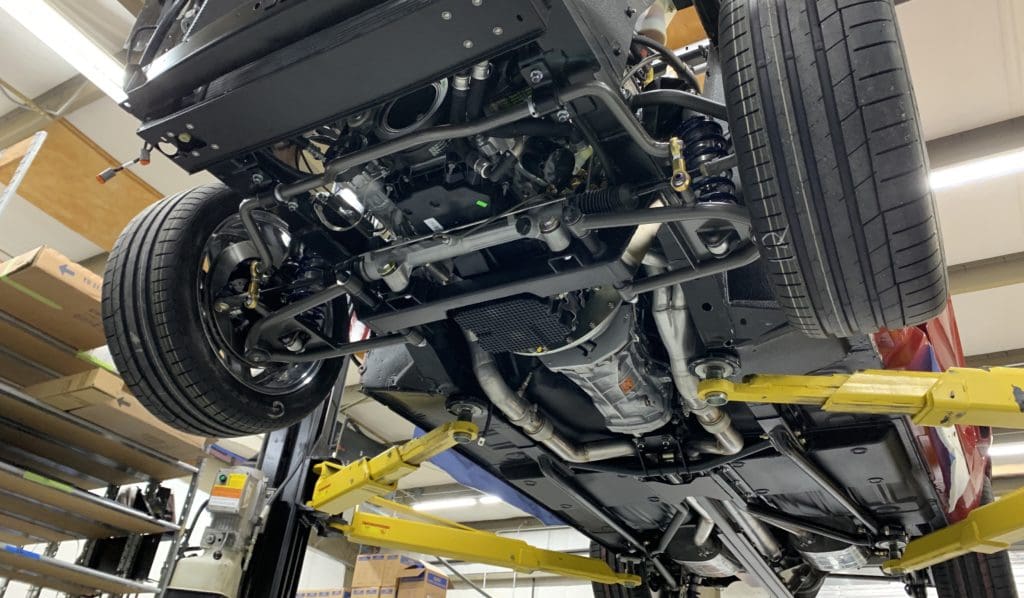While the auto industry is being gripped by parts shortages that are costing billions in lost revenue, Revology Cars is minimizing the impact on production with a ‘quick reaction’ strategy.
The parts crisis will cost the industry an estimated $450 billion by the end of 2022, and no major automakers are being spared. For example, Ford’s ever-popular F-series trucks saw sales decline by 23 percent in August. And Toyota has announced a 40 percent production cutback in Japan and North America that will reduce the automaker’s output by 360,000 vehicles.
Naturally delivery times for customers are being severely affected by these production delays.
Revology’s production volumes are tiny compared to a major car company, but the result of a critical part shortage or a lengthy delivery delay can be just as serious for it as for the major OEMs.
So how has Revology navigated around the problem? The man with the answers is Eric Smith, Revology Cars’ manufacturing operations manager.
A career background working at a medical supply company and, crucially, at Honda manufacturing in the US have given Smith the experience to deal with the current parts crisis. “At Honda I worked in the new model packaging group and was able to see directly how parts shortages interplay with production itself,” he notes. “At Revology I also benefit from having co-workers who come from big automotive companies. We all have the mindset of knowing how fast things can change and how important it is to constantly check upstream.”
Across the entire auto business, Smith says that Covid restrictions and labor shortages in various countries around the globe have created problems in parts production and shipments. “We have seen lead times jump from months to unknown,” says Smith, “because of parts not leaving their origins, or with problems getting them checked at ports, or getting parts to distributors.”
The headline-making parts in this crisis have been computer chips used in cars’ electronics, but the problems are by no means limited to chips. “We have fiberglass suppliers who manufacture here in the US, but cannot get the raw materials,” explains Smith. “We have run into different issues with components of all sizes, from big metal floor parts down to bolts.

Seeing the parts shortage problem looming early on, Smith acted to mitigate its effects on Revology. “We have a spent a lot of time reformatting our ordering process and making it as accurate as possible,” he says. “We had the advantage of having a large bank of sold orders, so we knew exactly what we would be building, and we could purchase parts further out than usual. Where we were buying one month out, now we are buying two or three months out, which has helped us a lot and given us more lead time to react to these back orders.”
Smith says part of the secret to success has been the company’s ability to move quickly to replace unavailable components with ones it is able to source, by swiftly implementing an engineering change. “Our small size allows us to be nimble, and we can react quickly,” says Aaron Wright, Revology’s Chief Engineer. “This has been crucial to our ability to respond to the supply shortages brought on by the global pandemic.”
When Revology couldn’t get the expandable foam it needed to make its seats, the company changed its process from molded to CNC machined foam. When it couldn’t get NVH (noise, vibration, and harshness) materials used for sound deadening, it revised its NVH package to adopt materials it could source. The company doesn’t skip any steps or cut any corners, however. Each change still must go through Revology’s engineering change implementation process. This process ensures that even the smallest detail is not overlooked.
As a result of careful planning combined with the ‘quick reaction’ approach, Smith says the company has gone through the entire Covid crisis to date without a company-wide production shutdown. “We are not out of the woods yet” says Smith, “but we will be able to manage our way to the end of this.”